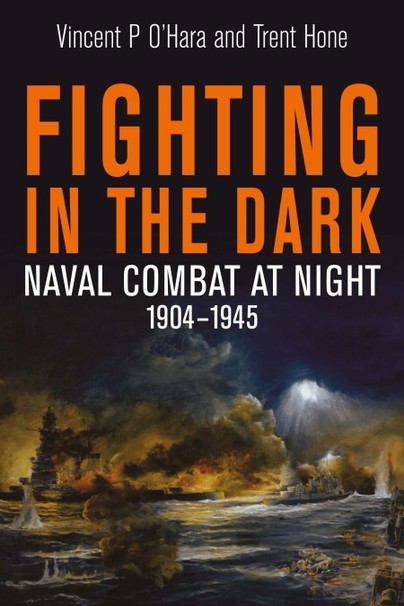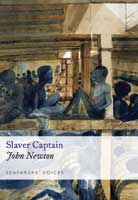Fighting in the Dark (Hardback)
Naval Combat at Night, 1904–1945
(click here for international delivery rates)
Order within the next 7 hours, 12 minutes to get your order processed the next working day!
Need a currency converter? Check XE.com for live rates
| Other formats available | Price |
|---|---|
| Fighting in the Dark eBook (26.5 MB) Add to Basket | £9.98 |
Fighting in the Dark is a new book about naval combat at night; the title also, however, signifies the overarching theme of the book, of moving from dark to light: in short, the process of mastering technological change during war.
The authors start with the proposition that it is hard to hit an invisible target, particularly one in motion. In the nineteenth century, when ships relied upon visual signalling and vessels beyond hailing range were deaf and mute in the dark, night battles at sea were rare and largely accidental. Three inventions changed this: the torpedo, the searchlight, and the radio. These inventions at the end of the nineteenth and start of the twentieth centuries transformed naval warfare by making combat in the dark feasible and in some cases, desirable. The process by which navies used the dark and adapted it into a medium for effective combat was long and difficult, more so for some than others. This book is about that process and about how Russian, British, German, Italian, Japanese and US navies confronted the specific new challenges and adapted to unfamiliar situations and emerging technologies.
Fighting in the Dark consists of chapters written by a group of highly respected naval historians, and the book’s approach illuminates how different navies and cultures approached common problems. The fierce night-time battles that are described serve as a metaphor for the larger issues and the reader is led along a fascinating journey of naval warfare from the Russo-Japanese War, through WWI, to the Second World War, and from the Pacific to the English Channel.
"Fighting in the Dark is a fascinating read that uses historical context surrounding one aspect of combat at sea to highlight the necessities for success when embracing any new information technology: training, experience, confidence, and employing the best means of sharing the new capability’s information. It is a message that never grows old."
Maritime Engineering Journal - Winter 2024 - 2025
Well-researched and well-written.
Vintage Airfix
Read the Full Review Here
Seaforth have once again given the reader a fascinating insight in their articulation of the practicalities of night fighting at sea and the development of significant weaponry and technology during the period 1904 to 1945 from the (relatively speaking) humble searchlight to extremely advanced detection systems such as sonar and radar.
Martin Willoughby, The Wessex Branch of the Western Front Association
This excellent work takes the reader very much from the dark to the light where night combat was to be avoided to it being an effective and normal course of action, an integral part of naval operations.
Through detailed research and analysis the reader is shown how various inventions facilitated night fighting although the route to effective and successful use of the technology and associated tactics was a long one and not without its difficulties.
With an excellent structure, good maps and illustrations, a glossary, notes and index this superb work is highly recommended for those with an interest in the development of naval warfare.
This is an excellent book by seasoned authors, with analyses and conclusions expertly presented in a readable and well-presented format.
Naval Review
Read the Full Review Here
As Featured in
Bibliothèque stratégique of VaeVictis - N° 170 - September/October 2023
Fighting in the Dark featuring a brilliantly told narrative of the night actions and how night fighting doctrine evolved. While the study ends in 1945, before the modern era of satellites, missiles, combat data systems and the emerging unmanned platforms, the fundamental need for innovative thinking, rapid decision-making and highly trained personnel is just as relevant today as it was during the naval night fighting era.
Australian Naval Institute
Read the review here
About Trent Hone
TRENT HONE is an independent naval historian and management consultant. He is the author of Learning War: The Evolution of Fighting Doctrine in the US Navy, 1898–1945 as well as numerous articles on the development of doctrine, tactics, and organizational learning. That editorial team was augmented by: STEPHEN MCLAUGHLIN, LEONARD HEINZ, JAMES GOLDRICK, ENRICO CERNUSCHI, JONATHAN PARSHALL and MICHAEL WHITBY.
About Vincent P O'Hara
VINCENT P O’HARA is a naval historian and the author seven major works, most recently Six Victories: North Africa, Malta and the Mediterranean Convoys, co-author of three, and the editor of two others. He is an experienced project manager and led the editorial team for this work.















